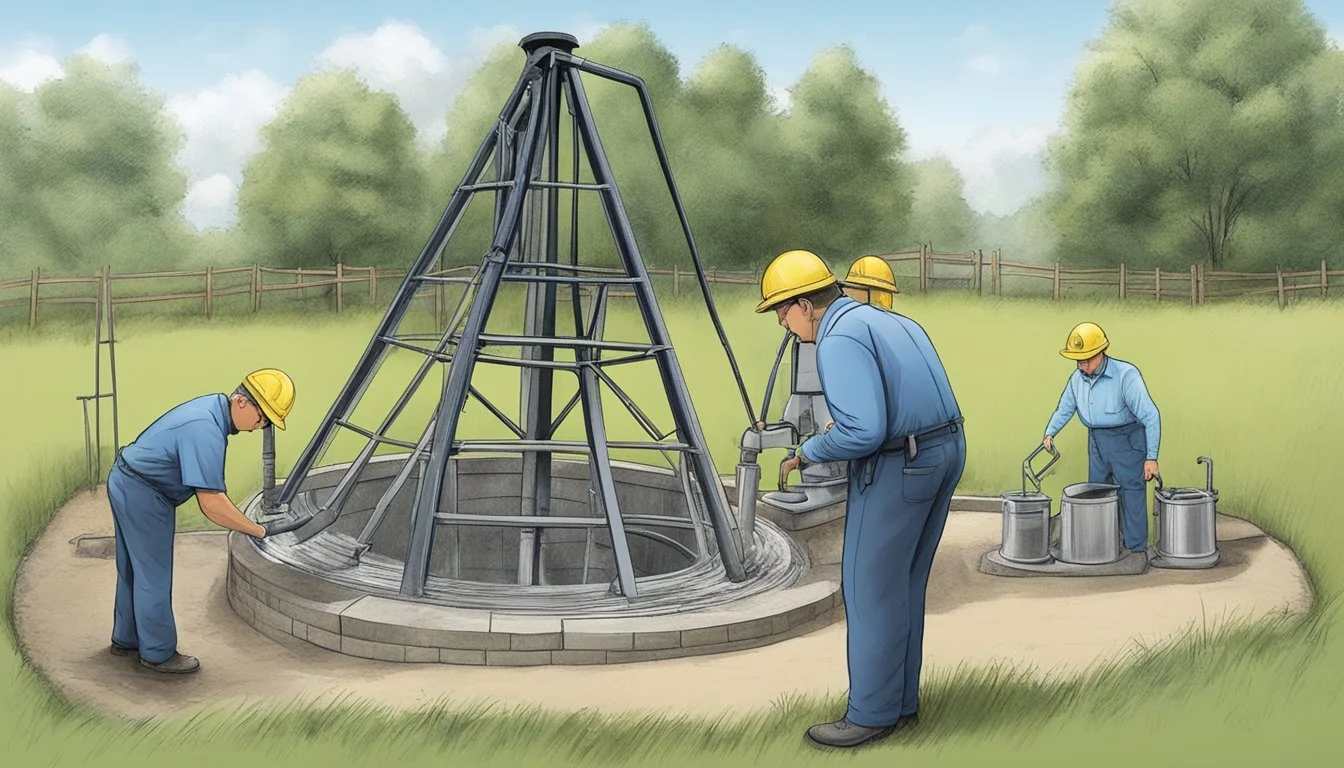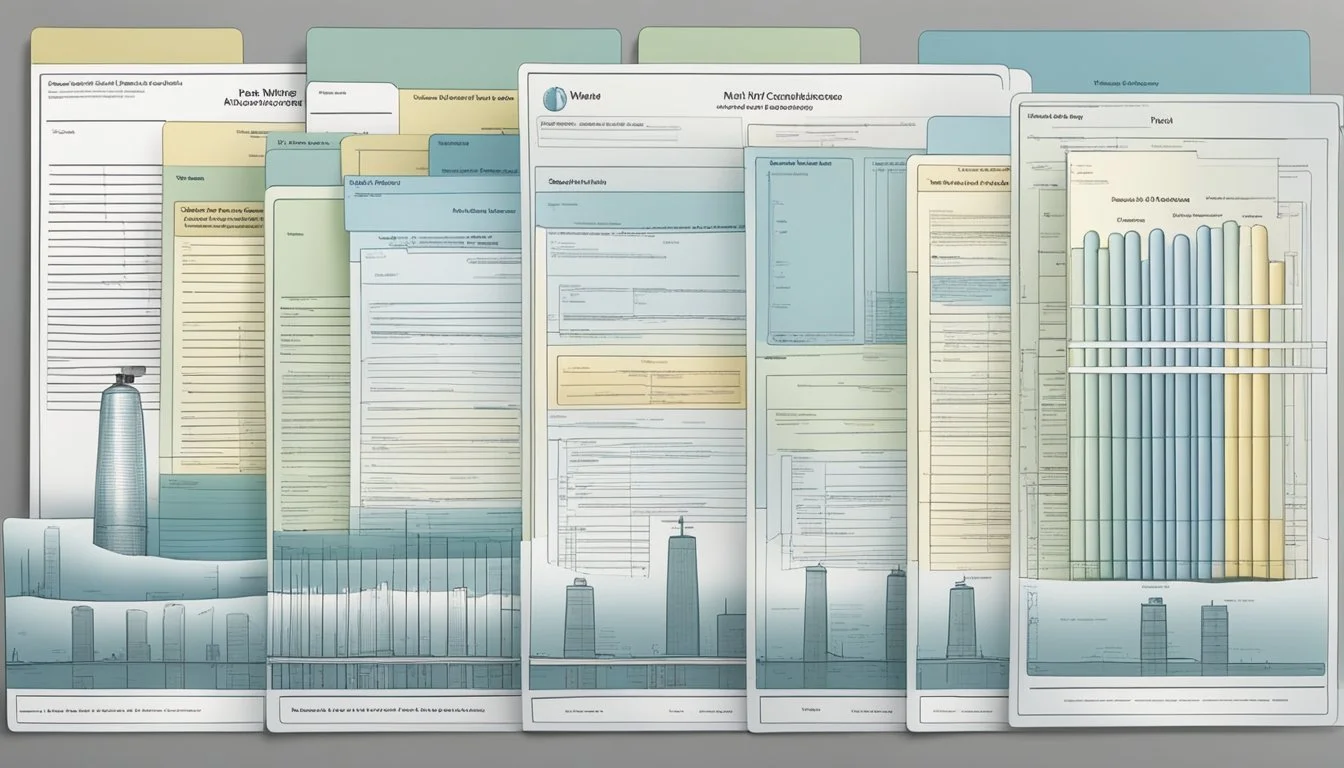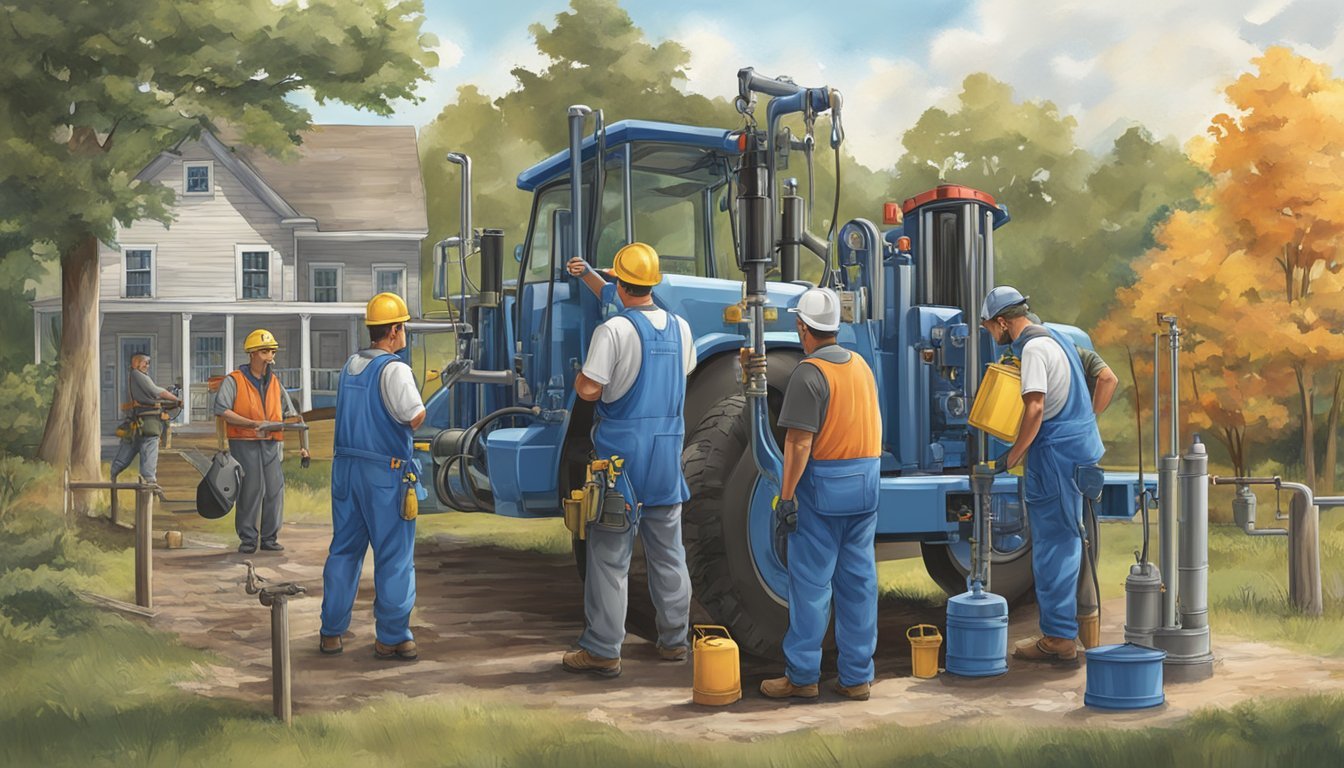New York Water Well Regulations
Understanding the Latest Compliance Standards
New York State takes the protection of its water resources seriously, with specific regulations in place to maintain the quality and safety of drinking water. Water well contractors operating within the state are required to adhere to a set of standards and procedures to ensure both the environmental integrity of water sources and the health of the public. The Drinking Water Protection Program - Regulations outline the steps necessary to protect water wells, including the responsibilities of contractors and the expectations for well construction and maintenance.
The Water Well Contractor Program is another critical component, setting forth the legal requirements for businesses involved in water well drilling. These requirements include mandatory annual registration with the New York State Department of Environmental Conservation (DEC) and detailed reporting on well completion. This framework ensures that all water well operations meet the state's high standards for protecting water resources.
Detailed codes and rules are also provided, comprehensively addressing the technical aspects of water well construction, from the necessity of permits to the official protocols for well abandonment. The New York Codes, Rules and Regulations provide a clear structure within which all water well construction must occur, which can be found under Water Well Construction. These regulations are in place to safeguard the state's water quantity and quality, reflecting New York's commitment to environmental stewardship and public health.
New York State Water Well Regulations Overview
New York State mandates strict regulations for water well construction, maintenance, and abandonment to ensure public health and safety. These guidelines are enforced by designated state entities that oversee various aspects of water well standards.
DEC and Department of Health Roles
In New York State, the Department of Environmental Conservation (DEC) is tasked with the registration of water well contractors, overseeing the compliance to environmental conservation law Section 15-1525. Contractors are required to register annually with the DEC and notify the department prior to the commencement of any drilling activity. They must also submit a Water Well Completion Report upon the conclusion of well construction.
The New York State Department of Health (DOH), on the other hand, outlines the construction standards for Individual Water Supply Wells in conjunction with the aforementioned DEC regulations to minimize contamination risks and promote sustainable water supply for homeowners.
Legislation and Water Well Standards
New York State's Public Health Law reflects a commitment to upholding public safety concerning water wells. It prescribes minimum standards for the construction, renovation, development, and abandonment of water wells. These regulations are detailed in the New York Code, Rules, and Regulations (NYCRR) Title 10, Part 5, specifically in Appendix 5-B, which is the benchmark for safe drinking water. Additionally, water wells catering to public systems have to follow the standards outlined in Subpart 5-1 of Title 10.
To comply with these standards, contractors are not only required to get the necessary permits but also adhere to stringent construction specifications. The DOH regulations focus on ensuring that wells provide safe drinking water and align with the recommended standards for water works. These set forth the procedures for obtaining permits, the need for compliance certificates post-construction, and protocols for well abandonment.
Water Well System Registration Requirements
In New York, water well contractors are legally required to abide by certain registration protocols to ensure the safety and proper management of water well systems.
Water Well Contractor Obligations
Contractors tasked with water well system installations must be registered with the New York State Department of Environmental Conservation. They are responsible for adhering to current regulations like ensuring compliance with the provisions of Appendix 5-B.
Registering Drilling and Pump Installation Services
Installations of individual water supply wells are to be executed by professionals who are registered well drillers. The registration form must be filled out accurately, listing at least one certified individual on the form from the drilling or pump installation services.
Annual Registration and Fees
Water well businesses are mandated to register annually with the DEC, with the registration period spanning from April 1 to March 31 each year. The process includes completing an official registration form and submitting it with the applicable annual registration fee of $10.
Water Resource Protection Measures
In New York, stringent regulatory measures are applied to safeguard water resources encompassing groundwater, aquifers, and surface water, with the objective to prevent contamination and ensure the sustainability of drinking water supplies.
Groundwater and Aquifer Sustainability
New York State mandates the use of specific siting and construction practices to ensure the protection of groundwater and the long-term sustainability of aquifers. For instance, the Department of Health offers detailed guidance on the recommended residential water quality testing for individual water supply wells, ensuring that the groundwater extracted meets safety standards and does not lead to the degradation of aquifers.
Surface Water Interaction and Protection
The interaction between surface water and groundwater is carefully regulated, with the New York State Department of Environmental Conservation (DEC) overseeing the Protection of Waters Program. This program establishes regulations to protect the quality of water by managing the state pollutant discharge elimination system and restricting activities that could adversely affect water bodies. It aims to preserve the value of New York's water resources and balance ecological health with social and economic development.
Preventing Contamination of Water Supplies
New York's approach to preventing contamination includes measures from the construction phase of wells to the monitoring of potential pollutants such as lead. The regulations stipulate the need for permits and compliance certificates for water well construction, as stated in the New York Codes, Rules, and Regulations (Section 5-2.10 - Certificate or letter of compliance). Monitoring systems and regular testing are integral in detecting and addressing contaminants that may threaten drinking water supplies.
Drilling and Well Construction Standards
In New York, detailed regulations ensure that water well construction and drilling protect both the water supply and the environment. Standards are set for the whole process, from drilling to the completion of wells, ensuring secure water quality and sufficient well yield.
Procedures for Well Drilling
The process of drilling a water well in New York must adhere to outlined procedures to safeguard groundwater. A permit is essential before commencement, outlining the specifics of construction and the precautions necessary to prevent contamination. Drilling must also conform to standards that dictate the method and materials used (Water Well Construction - New York Codes, Rules and Regulations).
Requirements for Well Casing and Completion
Well casing standards are crucial for maintaining the integrity of a water well. They involve using the correct materials for casing and ensuring it is properly installed to isolate groundwater from potential contaminants. Upon completion of the well, a water well completion report must be submitted, which confirms the well meets all regulatory standards (Part 5, Subpart 5-1 Standards for Water Wells - Appendix 5B).
Well Yield and Water Quality Testing
Finally, determining well yield and conducting water quality testing are mandatory steps. They assess whether the well can supply a sufficient amount of potable water and if it meets the necessary health standards. New York requires testing for a range of contaminants to ensure the safety of the water for all uses (Requirements for Well Drilling Activities).
Public Water Systems Considerations
In New York, water wells serving public systems must adhere to stringent standards to ensure safety and reliability. Operators of these systems are also required to hold specific certifications, indicative of their proficiency in managing a public water supply.
Standards for Systems Serving the Public
New York State mandates that water wells serving public water systems comply with specific construction and location criteria. The New York State Department of Health (DOH) has established these regulations to minimize contamination risks and guarantee a sustainable water supply. For example, Individual Water Supply Wells must meet the guidelines set by DOH 10NYCRR Appendix 5-B, which are designed to safeguard public health.
Furthermore, wells that serve a public water system are subject to additional requirements such as those in Appendix 5-A and 5-B of the State Sanitary Code, ensuring comprehensive coverage over various aspects of water well construction, maintenance, and monitoring.
Operator Classification and Certification
The classification of operators is a critical aspect of managing public water systems. New York has a robust system for the classification and certification of community and nontransient noncommunity water system operators. These classifications dictate the level of knowledge and experience required for operators based on the complexity and type of water system they manage.
The New York Codes, Rules and Regulations specify that not only must operators have the necessary certification but also they must continually adhere to the evolving standards, which are enforced through periodic assessments and trainings. Such measures ensure that the individuals responsible for public water supply system maintenance are fully equipped to handle their duties.
Professional Development and Certification
In New York, water well contractors are subject to stringent professional development and certification requirements. These standards ensure that individuals are equipped with the necessary skills and knowledge to perform their duties effectively.
NGWA Certification Exam
The National Ground Water Association (NGWA) is a central entity in the certification of water well contractors. Aspiring professionals must pass the NGWA Certification Exam to demonstrate their expertise in the field. This rigorous assessment covers various aspects of water well system practices to ensure a comprehensive understanding of industry standards.
Continuing Education for Contractors
Once certified, water well contractors must engage in continual professional development. State regulations often mandate ongoing education to maintain active certification. This typically includes a specified number of hours dedicated to learning new techniques, understanding updated regulations, and staying abreast of technological advancements within the industry. Such continuing education solidifies a contractor's standing as a knowledgeable and competent professional.
Decommissioning and Well Closure
In New York State, proper well decommissioning is crucial to safeguarding water quality and preventing environmental hazards. Specific regulations and procedures ensure that discontinued wells do not become conduits for contaminant migration.
Proper Procedures for Decommissioning
Decommissioning a water well requires following state-mandated procedures, which are designed to prevent any future contamination of water supplies. According to the New York State Department of Health, it is necessary for well decommissioning to be completed by professionals who adhere to stringent standards of well construction and closure. This process includes:
Removing all pumps, piping, and associated materials from the well.
Disinfecting the well using state-approved methods.
Filling and sealing the well with grout or other approved sealing materials to prevent migration of surface contaminants into the aquifer system.
Environmental Considerations and Reporting
Environmental protection is a priority in well decommissioning, which is reflected in the protocols required by the New York State Department of Environmental Conservation (DEC). They stipulate that decommissioning procedures must not only seal the well but should also remove potential obstructions to ensure the site does not pose any health or safety risk. Key considerations include:
Assessing the well site for remaining environmental concerns such as residual chemicals or biological contaminants.
Properly reporting decommissioned wells to the appropriate regional office as stipulated in the groundwater monitoring well decommissioning policy, thereby maintaining an accurate record of closed wells and enhancing water quality protection.
Specific County Regulations and Considerations
In the State of New York, water well construction and maintenance regulations can vary significantly at the county level, requiring residents and contractors to pay close attention to localized stipulations and processes. Counties may impose unique requirements and it is crucial to understand the role of county officials and professional engineers in this regulatory landscape.
Unique Requirements in Kings, Queens, and Nassau
Kings, Queens, and Nassau counties, being part of the densely populated regions of New York, have specific regulations that address the challenges posed by their urban setting. For instance, in these counties, the proximity to the Great Lakes and the Atlantic Ocean influences both the water table and potential contamination risks. County-specific codes often mandate additional protective measures to safeguard against saltwater intrusion and pollution.
Kings County: Regulations may stress on regular testing due to potential industrial pollutants.
Queens County: Proximity to JFK airport may necessitate special attention to fuel and de-icing runoff.
Nassau County: Stringent regulations guide the construction and abandonment of wells, especially due to its coastal location and its impact on the water quality.
Role of County Officials and Professional Engineers
County health department officials and professional engineers play an integral role in the oversight of water well systems. They ensure that all water wells meet state and local codes, and they tackle public health concerns.
County Officials: They are responsible for the issuance of permits and enforcement of regulations. Any waiver or approval for water supply sources that do not meet typical standards requires their direct involvement.
Key Responsibilities:
Issuance of construction and abandonment permits
Approval of waivers in special circumstances
Regular monitoring and compliance checks
Professional Engineers: These experts are usually required to assess and certify the design and installation of water wells, particularly in scenarios that are not straightforward and require technical discretion.
Key Contributions:
Development of well plans compliant with county and state regulations
Examination of potential environmental impacts
Certification of compliance for complex water well systems
In both roles, there is an emphasis on ensuring the safety and sustainability of water resources, with a close watch on the environmental impact and a commitment to public health standards.
Appendix 5-B Compliance and Fact Sheets
To ensure safe and potable water supply from private wells in New York, adhering to the regulations in Appendix 5-B is essential. Fact Sheets provided by the state serve to clarify these complex regulations and offer guidance for proper compliance.
Understanding Appendix 5-B
Appendix 5-B of the New York State regulations outlines the standards for the construction, maintenance, and abandonment of water wells. These standards protect groundwater from contamination, ensure well water safety, and promote sustainable water resources management. Individuals who wish to understand the requirements for water well location, construction, and potential contaminants can refer to this important document. The appendix includes specific details on well capping and the proper installation of water well pumps.
Utilizing Fact Sheets for Compliance
Fact Sheets, like Fact Sheet #5 and Fact Sheet #6, are valuable resources that simplify the technical language of the regulations into understandable terms. They provide guidance on how to comply with the rules set out in Appendix 5-B, such as maintaining the necessary separation distance from contaminant sources and meeting requirements for well location and protection. These sheets are particularly useful for homeowners, well drillers, and enforcement officials in ensuring adherence to proper water well practices.
Practical Considerations for Drillers and Pump Installers
Drillers and pump installers in New York must adhere to stringent standards to ensure the safety and reliability of water wells. Below, key equipment and techniques required for compliance are detailed, alongside the standards for pump installation.
Equipment and Techniques
Drillers should utilize state-of-the-art drilling equipment to meet the Environmental Conservation Law (ECL) requirements. They must pass two exams, including the General Drilling Exam to be qualified for drilling jobs. Techniques should align with sustainable practices to safeguard groundwater resources.
Drilling Techniques:
Rotary
Cable tool
Air rotary
Groundwater Protection:
Use of drilling muds that are environmentally safe
Proper casing to prevent contamination
Pump Installation Standards
Pump installers are responsible for the optimal operation of water systems. The pumps should be installed by a professional registered with the Department of Environmental Conservation, as per guidance for code enforcement officials. The installation must comply with the New York State Department of Health regulations.
Pump Installation Requirements:
Use of certified materials
Adherence to state-mandated depths and distances from contamination sources
System Testing:
Verification of sustainable flow rates before usage
Regular maintenance checks to ensure functionality
It's critical that both drillers and pump installers stay informed about updates in the industry and participate in continued education to maintain these standards. The Empire State Water Well Drillers Association is a resource for professionals to keep abreast of current regulations and innovations in the field.
Additional Resources and Support for Businesses
Businesses involved in water well drilling and management in New York State have access to a variety of resources and support systems. These resources are designed to ensure that businesses adhere to regulations and best practices in the industry.
NGWA Business Support
The National Ground Water Association (NGWA) provides extensive support for businesses operating within the groundwater industry. It offers educational resources, industry research, and advocacy to help businesses stay informed and competitive. The NGWA also facilitates networking opportunities that can aid businesses in maintaining up-to-date practices and technology.
State Provided Resources and Assistance
For state-specific guidance, the New York State Department of Environmental Conservation (DEC) has established a Water Well Contractor Program which mandates the registration of businesses conducting well-drilling activities. This program also requires the filing of a Water Well Completion Report upon the completion of each well. Businesses can seek assistance from DEC's Division of Water, utilizing ample resources such as regulatory requirements, documentation assistance, and contact information for expert support.
Moreover, the United States Geological Survey (USGS) offers data and insights relevant to New York's groundwater resources which businesses might find valuable for strategic planning and compliance with environmental regulations.
Frequently Asked Questions
This section addresses common inquiries regarding the regulation of water wells in New York State, providing clear and authoritative answers for residents and contractors.
What are the minimum separation distances required between a well and a septic system in New York State?
In New York State, wells must be installed at least 100 feet away from a septic system to prevent contamination.
How often is water well testing required by NYS regulations?
New York State regulations suggest that private water wells be tested annually to ensure water quality, particularly looking for coliform bacteria and any other contaminants of local concern.
What authority is responsible for regulating the construction of water wells in New York?
The New York State Department of Environmental Conservation (DEC) oversees the regulation of water well construction and sets forth standards that must be adhered to by contractors.
What are the minimum setback requirements for water wells from property lines in New York?
Wells in New York should be located at least 10 feet from any property line to comply with state guidelines, ensuring accessibility and reducing the risk of cross-contamination.
What standards must be met for drinking water from wells according to the New York State Department of Health?
The New York State Department of Health mandates that individual water supply wells meet specific standards for water wells to ensure safe drinking water, referencing NYS DOH Appendix 5-B.
What are the legal requirements for drilling a personal water well in New York State?
Drilling a personal water well in New York State requires compliance with the New York State Residential Code and the use of a certified DEC registered water well contractor for the installation.












